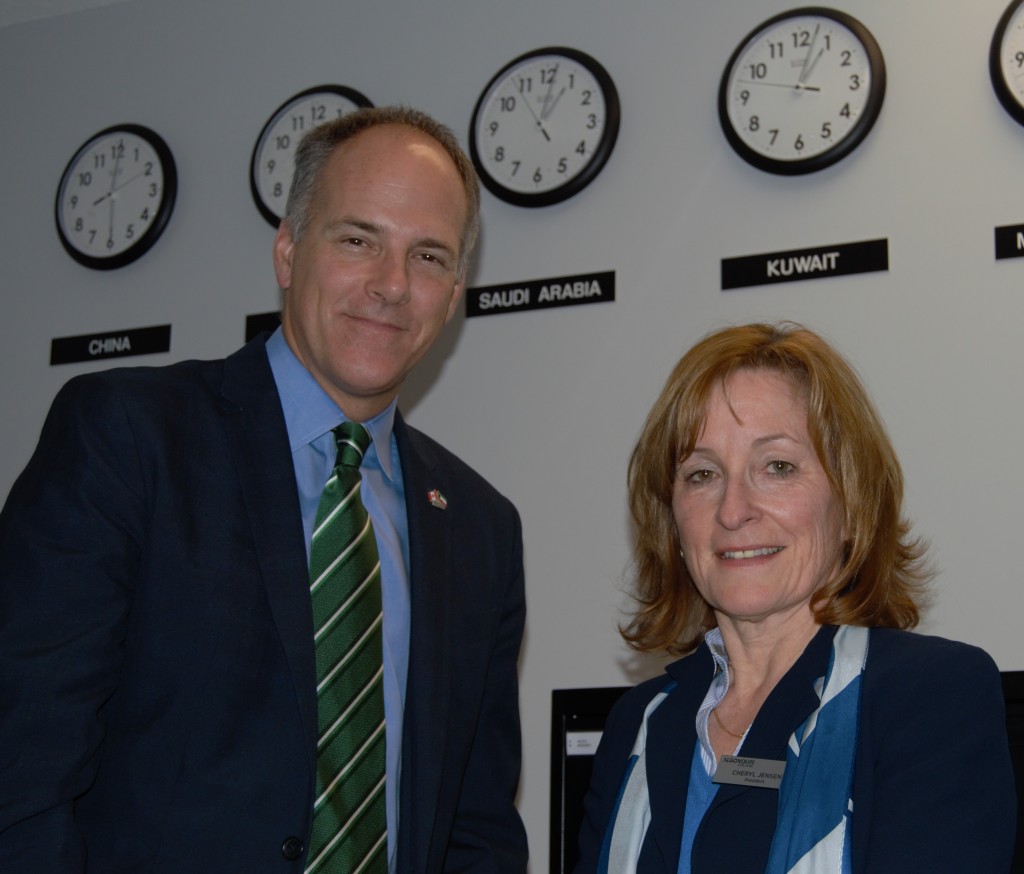
Algonquin president Cheryl Jensen and her executive staff will continue engagement with Saudi Arabia after a visit to Algonquin’s Jazan campus this past January, despite criticism from prominent voices on profitability and ulterior motives.
“We were profitable last year,” said Doug Wotherspoon, Algonquin’s vice-president of international and strategic priorities. “We are projecting a loss at this particular moment, but we know we have the support of the government and by the end of this year we’ll be profitable.”
Wotherspoon was referring to the loss detailed at the board of governors meeting.
“I anticipate that we will have two years of profitability,” Wotherspoon told the Times on Jan. 29.
Algonquin College opened its doors to Saudi Arabia in 2013, and after withdrawing from two additional campuses this past year, they now shift their focus to the completion of its Kuwait campus for the fall semester.
However, the plans to continue business in the Middle East has been met with concern.
“It is entirely appropriate to be ‘engaged’ with countries with whom you share core values or who are moving into that direction,” Jack Wilson, the vice-president of Algonquin’s faculty union, wrote in response to Wotherspoon.
“It is also appropriate to boycott or sanction those countries which behave inappropriately. In the case of Saudi Arabia, the human rights abuses continue unabated and barbaric practices such as public beheadings continue at an alarming rate. There are no human rights in any recognizable form.”
Wilson went on to say that the original justification for the college to partner with Saudi Arabia was financial, stating that the college is woefully underfunded by the Ontario government so it now has to look for other sources of funds, including those abroad.
Algonquin didn’t deny these claims.
“We used to be funded 100 per cent,” Wotherspoon said. “Last time we checked, it was in the neighbourhood of around 40 per cent. We need to be entrepreneurial if we’re going to invest in new technologies and new buildings here. We have to figure out where were going to get more revenue, and we think international education is one of them.”
Wotherspoon said that there’s a growing need for countries to have polytechnic systems in the developing world instead of overdeveloping the university system.
“University is great,” Wotherspoon said. “But college students actually get jobs.”
One of the Saudi Arabian students, Jazan’s Student Association president Mosa Wasly, remained hopeful for the future.
“It is a great idea for Algonquin to stay, but it will take time to grow because our society is different,” Wasly said. “For now the students don’t know how strong Algonquin is for education. I think if they hear about graduates having a guaranteed job with a good salary, they will think about it. But the school is new, and it will take time.”
Algonquin’s president shared a similar sentiment
“We’re changing people’s lives,” Jensen said. “If we walked away from that and simply said we’re not finishing here, think of all those young people that we are letting down. We can influence and have an effect on what we consider to be inequities in Saudi Arabia by education. Education is the great leveler.”


